- Home
- Blake Pierce
Once Forsaken (A Riley Paige Mystery—Book 7) Page 3
Once Forsaken (A Riley Paige Mystery—Book 7) Read online
Page 3
“It’s you and Dad who can’t deal with the truth,” Tiffany said.
“Hush,” her mother said.
Eunice handed her daughter a handkerchief.
“Tiffany, there were things you didn’t know about Lois,” she said slowly and cautiously. “She was more unhappy than she probably told you. She loved college, but it wasn’t easy for her. Keeping her grades up for her scholarships was a lot of pressure, and it was also hard for her to be away from home. She was starting to take antidepressants and was getting counseling at Byars. Your father and I thought she was getting along better, but we were wrong.”
Tiffany was trying to bring her sobs under control, but she still seemed very angry.
“That school is an awful place,” she said. “I’d never go there.”
“It’s not awful,” Eunice said. “It’s a very good school. It’s demanding, that’s all.”
“I’ll bet those other girls didn’t think it was such a good school,” Tiffany said.
April had been listening to her friend with great concern.
“What other girls?” she asked.
“Deanna and Cory,” Tiffany said. “They died too.”
Eunice shook her head sadly and said to Riley, “Two other girls committed suicide at Byars last semester. It’s been a terrible year there.”
Tiffany stared at her mother.
“They weren’t suicides,” she said. “Lois didn’t think so. She thought something was wrong at that place. She didn’t know what it was, but she told me it was something really bad.”
“Tiffany, they were suicides,” Eunice said wearily. “Everybody says so. Things like this happen.”
Tiffany stood up, shaking with rage and frustration.
“Lois’s death didn’t ‘just happen,’” she said.
Eunice said, “When you get older, you’ll understand that life can be harder than you realize. Now sit back down, please.”
Tiffany sat down in sullen silence. Eunice gazed off into space. Riley felt terribly uncomfortable.
“We really didn’t come here to disturb you in any way,” Riley told Eunice. “I apologize for the intrusion. Maybe it’s best if we leave.”
Eunice silently nodded. Riley and April showed themselves out.
“We should have stayed,” April said sullenly as soon as they were outside. “We should have asked more questions.”
“No, we were just upsetting them,” Riley said. “It was a terrible mistake.”
Suddenly, April trotted away from her.
“Where are you going?” Riley asked with alarm.
April headed straight for the side door to the garage. There was a strip of police tape across the doorframe.
“April, stay away from there!” Riley said.
April ignored both the tape and her mother and turned the doorknob. The door was unlocked and swung open. April ducked under the tape and into the garage. Riley hurried in after her, intending to scold her. Instead, her own curiosity got the best of her, and she peered around the garage.
There weren’t any cars inside, which made the three-car space look eerily cavernous. Dim light shone in through several windows.
April pointed toward a corner.
“Tiffany told me that Lois was found over there,” April said.
Sure enough, the spot was marked by strips of masking tape on the floor.
There were broad roof beams under the roof, and a stepladder leaning against the wall.
“Come on,” Riley said. “We shouldn’t be in here.”
She led her daughter out and pulled the door shut. As she and April walked toward the car, Riley visualized the scene. It was easy to imagine how the girl could have climbed up on that ladder and hanged herself.
Or was that really what happened? she wondered.
She had no reason to think otherwise.
Even so, she was beginning to feel a faint tingle of doubt.
*
A short while later at home, Riley called the district medical examiner, Danica Selves. She had been friends with Danica for years. When Riley asked her about the case of Lois Pennington’s death, Danica sounded surprised.
“Why are you so curious?” Danica asked. “Is the FBI taking an interest in this?”
“No, it’s just something personal.”
“Personal?”
Riley hesitated, then said, “My daughter is good friends with Lois’s sister, and she also knew Lois a little. Both she and Lois’s sister are having trouble believing that she committed suicide.”
“I see,” Danica said. “Well, the police found no signs of a struggle. And I conducted the tests and the autopsy myself. According to blood results, she’d taken a heavy dose of alprazolam some time before she died. My guess is she just wanted to be as out of it as she possibly could. By the time she hanged herself, she probably just didn’t care about what she was doing. It would have been a lot easier to do that way.”
“So it’s really an open-and-shut case,” Riley said.
“It sure looks that way to me,” Danica said.
Riley thanked her and ended the call. At that moment, April came downstairs with a calculator and a piece of paper.
“Mom, I think I’ve proved it!” she said excitedly. “It couldn’t have been anything but murder!”
April sat down beside Riley and showed her some numbers that she’d written down.
“I did a little research online,” she said. “I found out that about seven point five college students commit suicide out of one hundred thousand. That’s point zero zero seven five percent. But there are only about seven hundred students at Byars, and three of them are supposed to have killed themselves in the last few months. That’s about point four three percent—which is fifty-seven times the average! It’s just impossible!”
Riley’s heart sank. She appreciated that April was putting so much thought into this. It seemed very mature of her.
“April, I’m sure your math is just fine, but …”
“But what?”
Riley shook her head. “It doesn’t prove anything at all.”
April’s eyes widened with disbelief.
“What do you mean, it doesn’t prove anything?”
“In statistics, there are things called outliers. They’re exceptions to the rules, they go against the averages. It’s like the last case I worked on—the poisoner, remember? Most serial killers are men, but that was a woman. And most killers like to watch their victims die, but she just didn’t care. It’s the same thing here. It’s no surprise that there are some colleges where more students commit suicide than the average.”
April stared at her and said nothing.
“April, I just talked to the medical examiner who did the autopsy. She’s sure that Lois’s death was a suicide. And she knows her job. She’s an expert. We have to trust her judgment.”
April’s face was tight with anger.
“I don’t see why you can’t trust my judgment just this once.”
Then she stormed away and went upstairs.
At least she’s sure she knows what happened, she thought with a groan.
That was more than Riley could say for herself.
Her instincts still told her nothing at all.
CHAPTER FOUR
It was happening all over again.
The monster named Peterson held April captive somewhere just ahead.
Riley struggled and searched through the dark. Each step seemed slow and cumbersome, but she knew she had to hurry.
With her shotgun slung over her shoulder, Riley stumbled in the dark down a sharp, muddy slope toward a river. Suddenly she saw them. Peterson was standing ankle-deep in the water. Just a few feet from him, April was half submerged in the water, bound by her hands and feet.
Riley reached for her shotgun, but Peterson raised a pistol and pointed it directly at April.
“Don’t even think about it,” Peterson yelled. “One move and it’s over.”
Riley was seize
d with horror. If she even raised her shotgun, Peterson would kill April before she could fire.
She put the shotgun on the ground.
The terror on her daughter’s face would haunt her forever …
Riley stopped running and bent over, gasping.
It was early morning, and she had gone out for a run. But the horrible memory had stopped her dead in her tracks.
Would she ever forget that terrible moment?
Would she ever stop feeling guilty for putting April in deadly danger?
No, she thought. And that’s as it should be. I must never forget.
She inhaled and exhaled the sharp, cold air until she felt steadier. Then she started walking along the familiar woodland trail. Pale early-morning daylight was filtering through the trees.
This city park trail was close to home and easy to get to. Riley often ran here in the mornings. The exertion was usually good for driving ghosts and demons of past cases from her mind. But today it was having the opposite effect.
All that had happened yesterday—the visit to the Penningtons’, the peek into the garage, and April’s anger at Riley—had brought back floods of ugly memories.
And all because of me, Riley thought, quickening her pace into a jog.
But then she remembered what had happened next in that river.
Peterson’s gun jammed, and Riley shoved a knife between his ribs, only to stagger and fall into the cold water. Wounded, Peterson still managed to hold Riley under.
Then she saw April, wrists and feet still bound, raise the shotgun that Riley had dropped. She heard it crack against Peterson’s head.
But the monster turned and charged April. He shoved her face down in the water.
Her daughter was going to drown.
Riley found a sharp rock.
She lunged at Peterson, smashing it into his head.
He fell, and she leaped on top of him.
She smashed the rock into Peterson’s face over and over again.
The river darkened with blood.
Stirred by the memory, Riley ran faster.
She was proud of her daughter. April had shown courage and resourcefulness on that terrible day. She had been brave in other dangerous situations too.
But now April was angry with Riley.
And Riley couldn’t help but wonder if it was with good reason.
*
Riley felt doubly out of place at Lois Pennington’s church funeral service late that afternoon.
For one thing, she’d seldom gone to church over the years. Her father had been a hardened ex-Marine who never believed in anything or anyone but himself. She’d lived with an aunt and uncle during some of her childhood and teen years, and they’d tried to get her to go to church, but Riley had been too rebellious.
As far as funerals were concerned, Riley simply hated them. She’d seen too much of the brutal reality of death during her two decades in law enforcement, so as far as she was concerned, funerals were simply phony. They always made death seem so clean and peaceful.
The whole thing is misleading, she kept thinking. This girl had died violently, whether at her own hands or someone else’s.
But April had insisted on coming, and Riley couldn’t let her face this by herself. Which seemed ironic, because at the moment it was Riley who felt alone. She was sitting next to the aisle in the back row of the crowded sanctuary. April was up near the front, sitting in the row right behind the family, as close to Tiffany as she could get. But Riley was glad that April was near her friend, and she didn’t mind sitting by herself.
Sunshine brightened the stained glass windows, and the casket at the front was layered with flowers and several large wreaths. The service was dignified and the choir sang well.
The preacher was droning on now about faith and salvation, assuring everybody that Lois was now in a better place. Riley wasn’t paying attention to his words. She was looking around for telltale clues as to why Lois Pennington had died.
Yesterday she had noticed how Lois’s parents sat slightly apart on their couch, not quite touching. She hadn’t been sure how to read their body language. But now Lester Pennington’s arm was around Eunice’s shoulder in a warm gesture of comfort. The two of them seemed to be perfectly ordinary grieving parents.
If there was anything seriously amiss about the Penningtons as a family, Riley couldn’t see it.
And oddly enough, that made Riley feel distinctly uneasy.
She considered herself a keen observer of human nature. If Lois had really committed suicide, her family life had most likely been troubled. But nothing appeared wrong with them—nothing other than normal grief.
The preacher managed to finish his sermon without once mentioning the supposed cause of Lois’s death.
Then came a series of short, tearful testimonials by friends and relatives. They spoke of grief and happier times, sometimes relating humorous events that evoked sad chuckles from the congregation.
But nothing about suicide, Riley kept thinking.
Something seemed off to her.
Wouldn’t somebody who had been close to Lois want to acknowledge something dark about her final days—a struggle against depression, a battle against inner demons, some unanswered cry for help? Wouldn’t somebody suggest that her tragic death should be a lesson to others to get help and support instead of taking one’s own life?
But no one said anything of the kind.
No one wanted to talk about it.
They seemed to be ashamed or baffled or both.
Perhaps they didn’t even fully believe it.
The testimonials ended, and it came time for viewing the body. Riley stayed seated. She was sure that the mortician had done a skillful job. Whatever was left of poor Lois didn’t look at all like she had looked when she was found hanging in that garage. Riley knew from hard experience what a strangled corpse looked like.
Finally the preacher offered a closing benediction and the casket was carried out. The family walked out together, and everybody else was free to go.
When Riley got outside, she saw Tiffany and April hugging each other tearfully. Then Tiffany saw Riley and hurried toward her.
“Isn’t there anything you can do?” the girl asked in a choked voice.
Shaken, Riley managed to say, “No, I’m sorry.”
Before Tiffany could plead further, her father called out her name. Tiffany’s family was climbing into a black limousine. Tiffany joined them, and the vehicle drove away.
Riley turned back toward April, who refused to look at her.
“I’ll take a bus home,” April said.
April walked away, and Riley didn’t try to stop her. Feeling terrible, she made her way to her car in the church parking lot.
*
Dinner that evening was hardly the cheerful occasion it had been just two days ago. April was still not speaking to Riley, and barely to anybody else. Her sadness was catching. Ryan and Gabriela were somber as well.
In the middle of the meal, Jilly spoke up.
“I made a friend at school today. Her name is Jane. She’s adopted, like me.”
April’s expression brightened.
“Hey, that’s great, Jilly,” April said.
“Yeah. We’ve got a whole lot in common. A lot to talk about.”
Riley’s own spirits lifted slightly. It was good that Jilly was starting to make friends. And Riley knew that April had been worried about Jilly.
The two girls talked a little about Jane. Then everybody fell silent again, as somber as before.
Riley knew that Jilly wanted to break the dark mood, to cheer April up. But the younger girl looked worried now. Riley guessed that she was alarmed by all this tension in her new family. Jilly was surely afraid she could lose what she had so recently found.
I hope she’s not right, Riley thought.
After dinner, the girls went upstairs to their rooms and Gabriela cleaned up the kitchen. Ryan poured a glass of bourbon for Riley and another for hi
mself, and they sat together in the living room.
Neither of them spoke for a little while.
“I’m going upstairs to talk to April,” Ryan finally said.
“Why?” Riley asked.
“She’s being rude. And she’s being disrespectful to you. We shouldn’t let her get away with it.”
Riley sighed.
“She’s not being rude,” she said.
“Well, what would you call it?”
Riley thought for a moment.
“She just really cares,” she said. “She’s worried about her friend Tiffany, and she’s feeling powerless. She’s afraid that something terrible happened to Lois. We should be glad that she’s thinking about others. It’s a sign of growing up.”
They both fell silent again.
“What do you think really happened?” Ryan finally asked. “Do you think Lois committed suicide, or was she murdered?”
Riley shook her head wearily.
“I wish I knew,” she said. “I’ve learned to trust my gut, my instincts. But my instincts aren’t kicking in at all. I just don’t have any feeling about it one way or the other.”
Ryan patted her hand.
“Whatever happened, it’s not your responsibility,” he said.
“You’re right,” Riley said.
Ryan yawned.
“I’m tired,” he said. “I think I’m going to turn in early.”
“I’ll sit down here for a while,” Riley said. “I’m not ready to sleep yet.”
Ryan went upstairs, and Riley poured herself another large drink. The house was quiet, and Riley felt alone and strangely helpless—just as she was sure April was feeling. But after another drink, she started to relax and soon felt drowsy. She kicked off her shoes and stretched out on the couch.
A little while later she woke up to find that somebody had tucked blankets around her. Ryan must have come downstairs to check on her and make sure she was comfortable.
Riley smiled, feeling less alone now. Then she fell asleep again.
*
Riley felt a flash of déjà vu as April hurried toward the Penningtons’ garage.
As she’d done yesterday, Riley called out.

_preview.jpg) Once Gone (a Riley Paige Mystery--Book #1)
Once Gone (a Riley Paige Mystery--Book #1)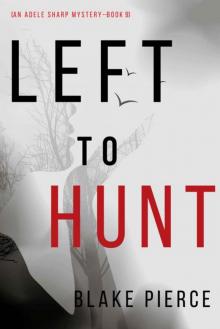 Left to Hunt (An Adele Sharp Mystery—Book Nine)
Left to Hunt (An Adele Sharp Mystery—Book Nine)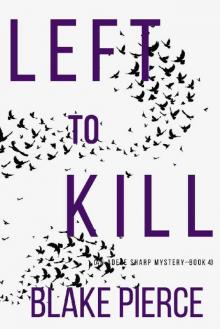 Left to Kill (An Adele Sharp Mystery—Book Four)
Left to Kill (An Adele Sharp Mystery—Book Four)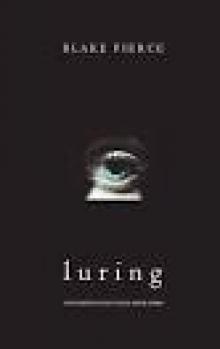 LURING
LURING If She Hid
If She Hid If She Fled
If She Fled Already Gone (A Laura Frost FBI Suspense Thriller—Book 1)
Already Gone (A Laura Frost FBI Suspense Thriller—Book 1) Vengeance in Vienna
Vengeance in Vienna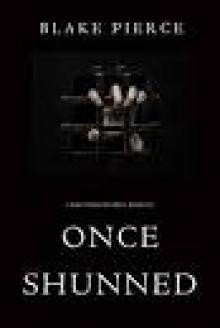 Once Shunned
Once Shunned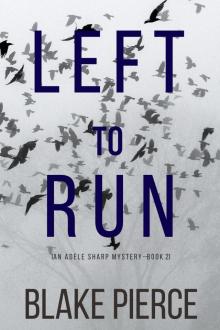 Left To Run
Left To Run Face of Fury (A Zoe Prime Mystery--Book 5)
Face of Fury (A Zoe Prime Mystery--Book 5) Blake Pierce - Kate Wise - 5 - If She Fled
Blake Pierce - Kate Wise - 5 - If She Fled IF SHE RAN
IF SHE RAN Left to Envy (An Adele Sharp Mystery—Book Six)
Left to Envy (An Adele Sharp Mystery—Book Six) Silent Neighbor
Silent Neighbor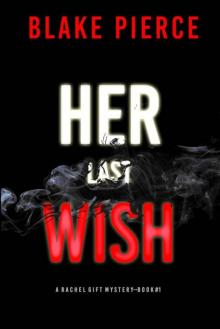 Her Last Wish (A Rachel Gift FBI Suspense Thriller—Book 1)
Her Last Wish (A Rachel Gift FBI Suspense Thriller—Book 1)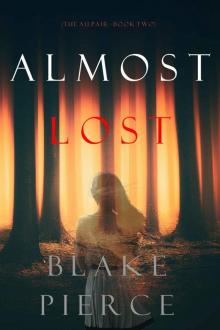 Almost Lost
Almost Lost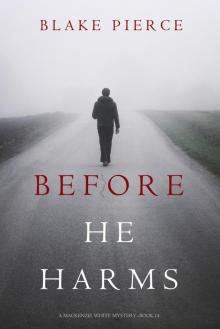 Before He Harms
Before He Harms Murder (and Baklava) (A European Voyage Cozy Mystery—Book 1)
Murder (and Baklava) (A European Voyage Cozy Mystery—Book 1) Left to Vanish (An Adele Sharp Mystery—Book Eight)
Left to Vanish (An Adele Sharp Mystery—Book Eight) THE PERFECT IMAGE
THE PERFECT IMAGE The Perfect Affair (A Jessie Hunt Psychological Suspense Thriller—Book Seven)
The Perfect Affair (A Jessie Hunt Psychological Suspense Thriller—Book Seven)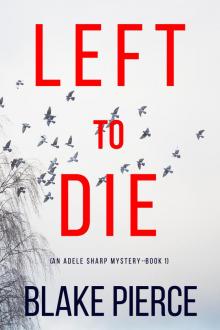 Left To Die
Left To Die BEFORE HE LAPSES
BEFORE HE LAPSES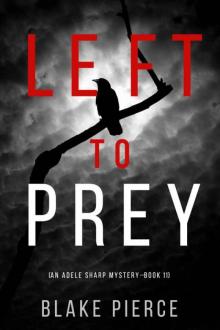 Left to Prey (An Adele Sharp Mystery—Book Eleven)
Left to Prey (An Adele Sharp Mystery—Book Eleven) The Perfect Neighbor (A Jessie Hunt Psychological Suspense Thriller—Book Nine)
The Perfect Neighbor (A Jessie Hunt Psychological Suspense Thriller—Book Nine)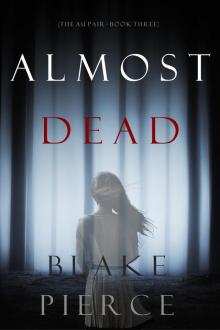 Almost Dead
Almost Dead The Perfect Wife
The Perfect Wife The Perfect Smile
The Perfect Smile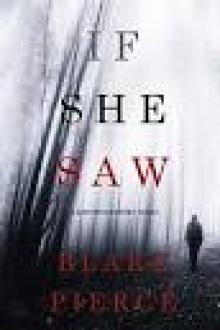 If She Saw
If She Saw Left To Die (An Adele Sharp Mystery—Book One)
Left To Die (An Adele Sharp Mystery—Book One)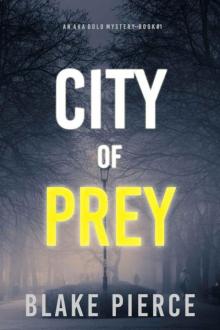 City of Prey: An Ava Gold Mystery (Book 1)
City of Prey: An Ava Gold Mystery (Book 1)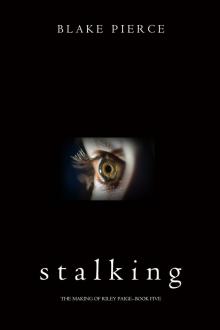 Stalking
Stalking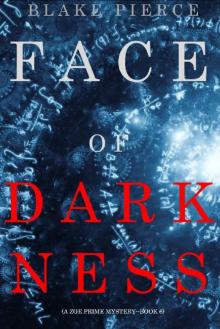 Face of Darkness (A Zoe Prime Mystery—Book 6)
Face of Darkness (A Zoe Prime Mystery—Book 6) The Perfect Mistress (A Jessie Hunt Psychological Suspense Thriller—Book Fifteen)
The Perfect Mistress (A Jessie Hunt Psychological Suspense Thriller—Book Fifteen) Girl, Vanished (An Ella Dark FBI Suspense Thriller—Book 5)
Girl, Vanished (An Ella Dark FBI Suspense Thriller—Book 5) The Perfect Block
The Perfect Block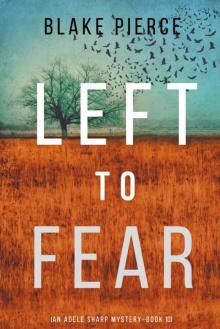 Left to Fear (An Adele Sharp Mystery—Book Ten)
Left to Fear (An Adele Sharp Mystery—Book Ten) Almost Gone (The Au Pair—Book One)
Almost Gone (The Au Pair—Book One) The Perfect Facade (A Jessie Hunt Psychological Suspense Thriller—Book Twelve)
The Perfect Facade (A Jessie Hunt Psychological Suspense Thriller—Book Twelve) The Perfect Affair
The Perfect Affair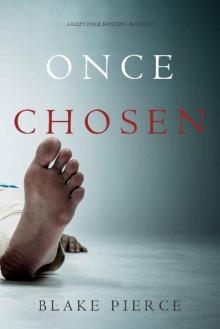 Once Chosen (A Riley Paige Mystery—Book 17)
Once Chosen (A Riley Paige Mystery—Book 17)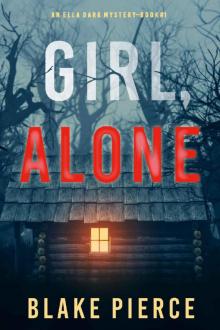 Girl, Alone (An Ella Dark FBI Suspense Thriller—Book 1)
Girl, Alone (An Ella Dark FBI Suspense Thriller—Book 1)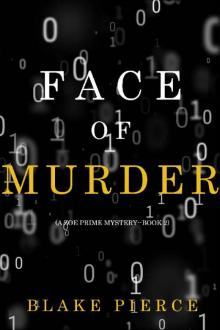 Face of Murder (A Zoe Prime Mystery—Book 2)
Face of Murder (A Zoe Prime Mystery—Book 2) The Perfect Mistress
The Perfect Mistress Crime (and Lager) (A European Voyage Cozy Mystery—Book 3)
Crime (and Lager) (A European Voyage Cozy Mystery—Book 3)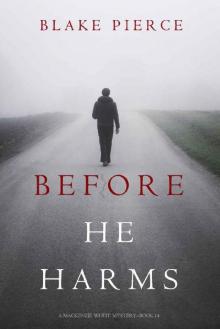 Before He Harms (A Mackenzie White Mystery—Book 14)
Before He Harms (A Mackenzie White Mystery—Book 14)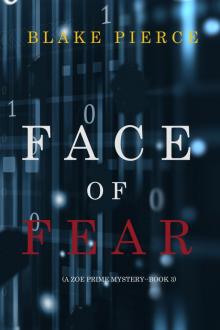 Face of Fear
Face of Fear Left to Murder (An Adele Sharp Mystery—Book Five)
Left to Murder (An Adele Sharp Mystery—Book Five) Left to Vanish
Left to Vanish The Perfect Secret (A Jessie Hunt Psychological Suspense Thriller—Book Eleven)
The Perfect Secret (A Jessie Hunt Psychological Suspense Thriller—Book Eleven) The Perfect Deceit (A Jessie Hunt Psychological Suspense Thriller—Book Fourteen)
The Perfect Deceit (A Jessie Hunt Psychological Suspense Thriller—Book Fourteen)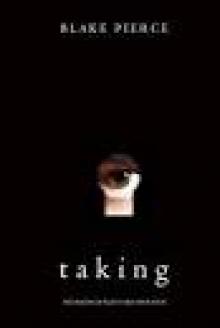 Blake Pierce - The Making of Riley Paige - 4 - Taking
Blake Pierce - The Making of Riley Paige - 4 - Taking Death (and Apple Strudel) (A European Voyage Cozy Mystery—Book 2)
Death (and Apple Strudel) (A European Voyage Cozy Mystery—Book 2) THE PERFECT HOUSE
THE PERFECT HOUSE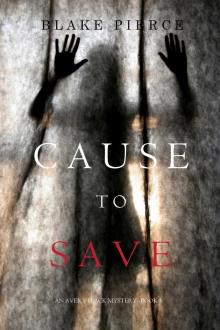 Cause to Save
Cause to Save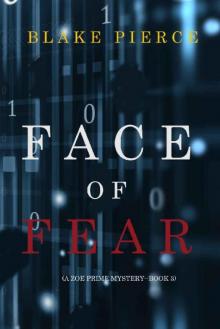 Face of Fear (A Zoe Prime Mystery—Book 3)
Face of Fear (A Zoe Prime Mystery—Book 3)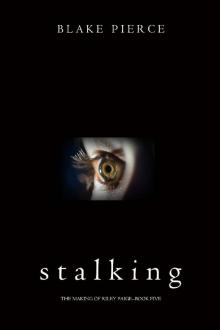 Stalking (The Making of Riley Paige—Book 5)
Stalking (The Making of Riley Paige—Book 5) A Neighbor's Lie
A Neighbor's Lie The Perfect Neighbor
The Perfect Neighbor Once Dormant
Once Dormant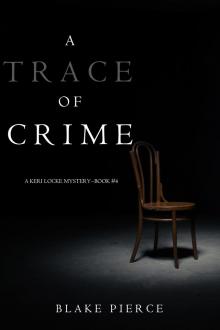 A Trace of Crime
A Trace of Crime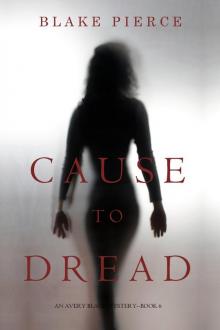 CAUSE TO DREAD
CAUSE TO DREAD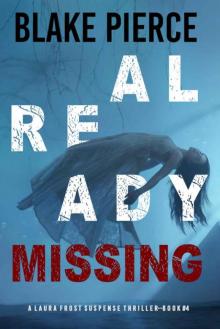 Already Missing (A Laura Frost FBI Suspense Thriller—Book 4)
Already Missing (A Laura Frost FBI Suspense Thriller—Book 4) Waiting
Waiting If She Knew
If She Knew If She Feared (A Kate Wise Mystery—Book 6)
If She Feared (A Kate Wise Mystery—Book 6)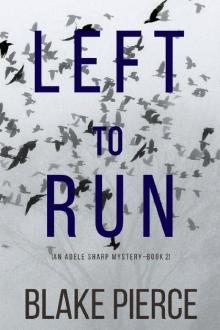 Left To Run (An Adele Sharp Mystery—Book Two)
Left To Run (An Adele Sharp Mystery—Book Two)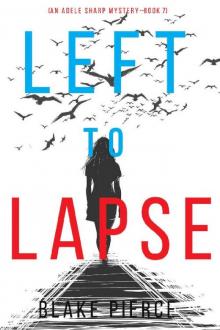 Left to Lapse (An Adele Sharp Mystery—Book Seven)
Left to Lapse (An Adele Sharp Mystery—Book Seven) If She Hid (A Kate Wise Mystery—Book 4)
If She Hid (A Kate Wise Mystery—Book 4) The Perfect Alibi (A Jessie Hunt Psychological Suspense Thriller—Book Eight)
The Perfect Alibi (A Jessie Hunt Psychological Suspense Thriller—Book Eight)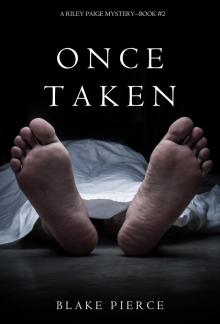 Once Taken
Once Taken Before He Envies
Before He Envies Before He Sins
Before He Sins Mackenzie White 07-Before He Sins
Mackenzie White 07-Before He Sins ONCE BOUND
ONCE BOUND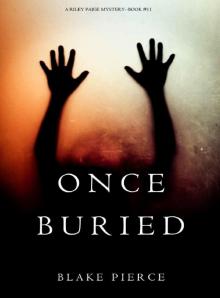 Once Buried
Once Buried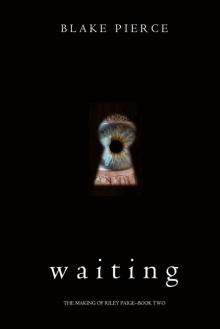 Waiting (The Making of Riley Paige—Book 2)
Waiting (The Making of Riley Paige—Book 2)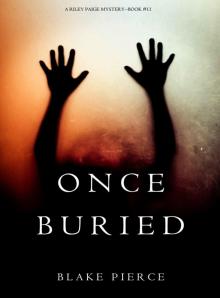 Riley Paige 11-Once Buried
Riley Paige 11-Once Buried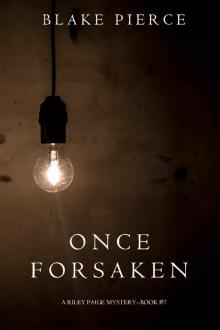 Once Forsaken (A Riley Paige Mystery—Book 7)
Once Forsaken (A Riley Paige Mystery—Book 7)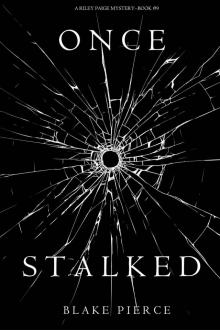 Once Stalked (A Riley Paige Mystery—Book 9)
Once Stalked (A Riley Paige Mystery—Book 9) The Perfect Disguise (A Jessie Hunt Psychological Suspense Thriller—Book Ten)
The Perfect Disguise (A Jessie Hunt Psychological Suspense Thriller—Book Ten)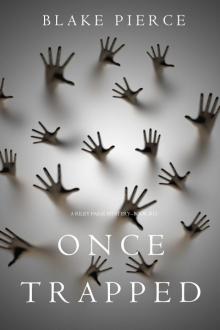 ONCE TRAPPED
ONCE TRAPPED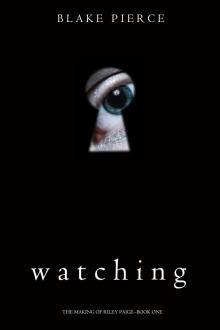 Watching
Watching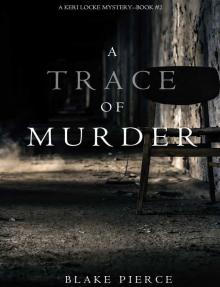 Keri Locke 02-A Trace of Muder
Keri Locke 02-A Trace of Muder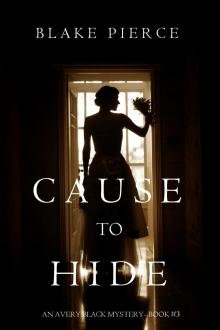 Cause to Hide
Cause to Hide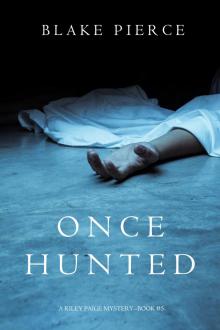 Once Hunted
Once Hunted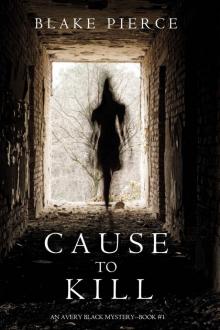 Cause to Kill (An Avery Black Mystery—Book 1)
Cause to Kill (An Avery Black Mystery—Book 1)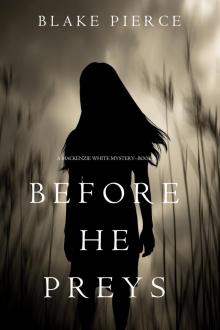 Before He Preys
Before He Preys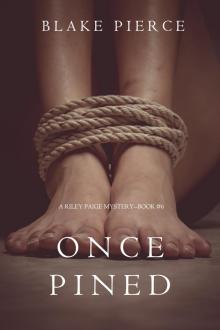 Once Pined
Once Pined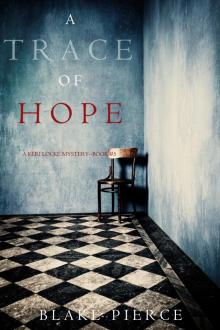 A Trace of Hope
A Trace of Hope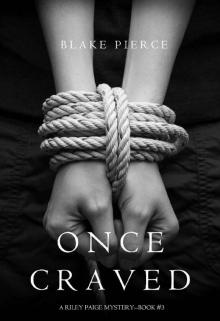 Once Craved (a Riley Paige Mystery--Book #3)
Once Craved (a Riley Paige Mystery--Book #3)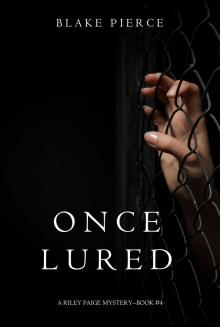 Once Lured
Once Lured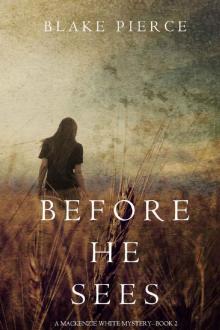 Before He Sees (A Mackenzie White Mystery—Book 2)
Before He Sees (A Mackenzie White Mystery—Book 2) Before he Kills (A Mackenzie White Mystery—Book 1)
Before he Kills (A Mackenzie White Mystery—Book 1)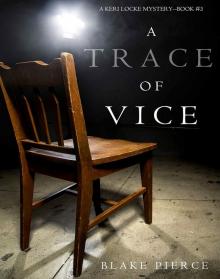 Keri Locke 03-A Trace of Vice
Keri Locke 03-A Trace of Vice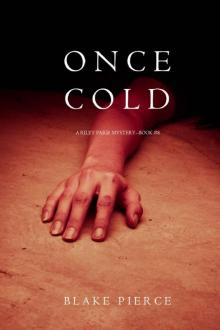 Once Cold
Once Cold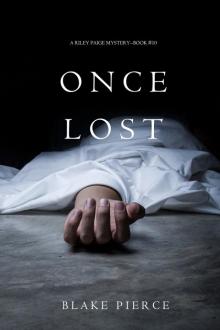 ONCE LOST
ONCE LOST Before He Takes
Before He Takes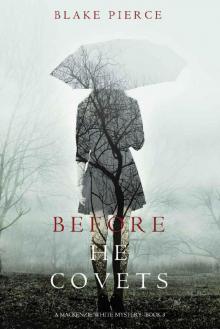 Before He Covets (A Mackenzie White Mystery—Book 3)
Before He Covets (A Mackenzie White Mystery—Book 3) BEFORE HE NEEDS
BEFORE HE NEEDS